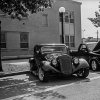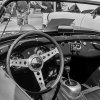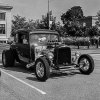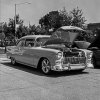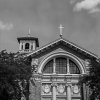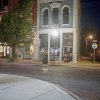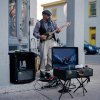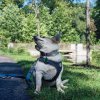- Thread starter
- #21
Hi Legion,Cool. I think a C3 will probably be a more useful camera than the Yashica.
If it is like my C330, which is a later model of the same thing, the focusing screens are interchangeable. You might be able to track a screen down with a split prism, which makes focusing easier. That's what I did.
And FWIW, the dust is coming from when the film is hanging to dry. If you need to you can wash the film again, and make sure it dries somewhere dust free.
I didn't develop this roll. The class I am taking starts on the 19th. Dodd camera developed it. If you look frame right in each pic, there are consistent blemishes. I assume its dust. I did clean the rear element of the lenses. Both looking and taking.
I do see a little dust that is inconsistent in the pictures.

